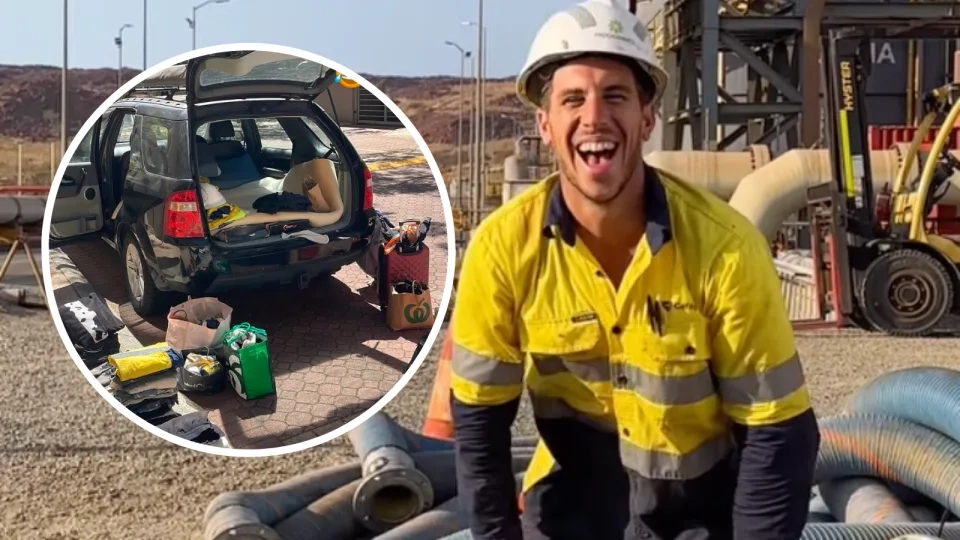Axel De Lièvre, a fly-in-fly-out (FIFO) mine worker in Western Australia, is challenging the conventional notion of accommodation expenses for high-income workers. While earning around $3,500 per week, De Lièvre has opted to sleep in his car during his time off rather than splurge on pricey hostel beds in Perth, where the rental market is notoriously tight.
De Lièvre is not a tradesman but rather a tradie’s assistant, performing a variety of tasks on the mine site, including transporting water, cleaning equipment, and operating a forklift. His unconventional choice of accommodation stems from the high demand for hostel beds in Perth, making affordable accommodations hard to secure without advance booking.
The mining sector is known for its generous compensation, prompting many to inquire about following De Lièvre’s footsteps. Originally a personal trainer in Belgium and Mexico, he transitioned to mining in Canada before relocating to Australia. However, he cautions that the work can be strenuous and isn’t suitable for everyone.
A typical workday for De Lièvre involves early starts, with breakfast provided at the camp before being transported to the worksite. His tasks include cleaning work areas, machinery maintenance, and hazardous substance disposal. With temperatures often exceeding 30°C and reaching highs of 36°C between December and March, the workdays are challenging.
De Lièvre works for two weeks straight before enjoying a one-week break. While the job offers a high income and covers expenses like flights, accommodation, food, and gym facilities, it comes with isolation, loneliness, distance from family, long work hours, and a work-life imbalance.
As a tradesman’s assistant, De Lièvre primarily works during shutdown periods when the mine is temporarily closed for maintenance, repairs, infrastructure upgrades, or safety inspections. These projects can involve long hours, such as 12-hour workdays, six days a week.
De Lièvre explains that getting into Australia’s mining sector is relatively straightforward, requiring a medical check and the completion of various certifications, including those related to confined spaces and working at heights. His tips for aspiring FIFO workers include traveling to Perth, obtaining necessary certifications, and applying to numerous positions to increase their chances of landing a job.
The mining industry offers a range of opportunities, from entry-level roles paying up to $130,000 with training and career progression promises to positions for accredited tradespeople. Recruiters specialising in FIFO jobs are available for those interested in exploring this sector, emphasising the need for patience during the job search process.





